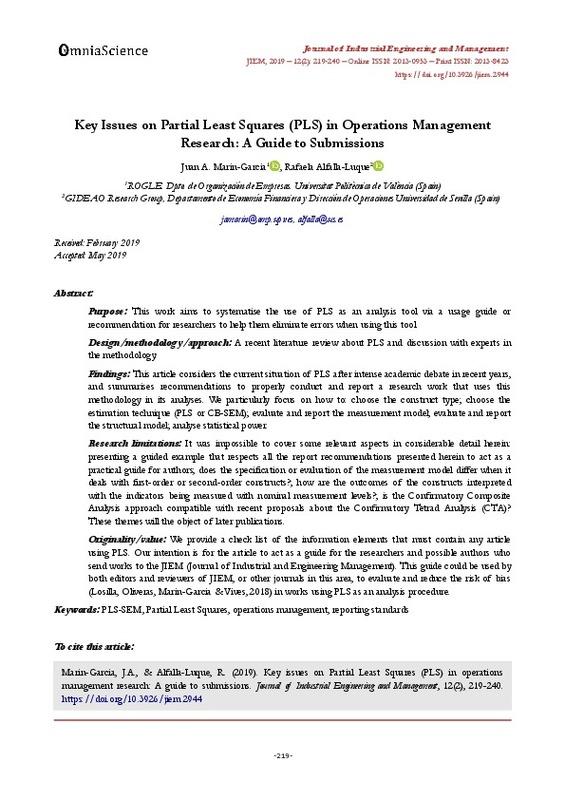JavaScript is disabled for your browser. Some features of this site may not work without it.
Buscar en RiuNet
Listar
Mi cuenta
Estadísticas
Ayuda RiuNet
Admin. UPV
Key Issues on Partial Least Squares (PLS) in Operations Management Research: A Guide to Submissions
Mostrar el registro completo del ítem
Marin-Garcia, JA.; Alfalla-Luque, R. (2019). Key Issues on Partial Least Squares (PLS) in Operations Management Research: A Guide to Submissions. Journal of Industrial Engineering and Management. 12(2):219-240. https://doi.org/10.3926/jiem.2944
Por favor, use este identificador para citar o enlazar este ítem: http://hdl.handle.net/10251/158834
Ficheros en el ítem
Metadatos del ítem
| Título: | Key Issues on Partial Least Squares (PLS) in Operations Management Research: A Guide to Submissions | |
| Autor: | Alfalla-Luque, Rafaela | |
| Entidad UPV: |
|
|
| Fecha difusión: |
|
|
| Resumen: |
[EN] Purpose: This work aims to systematise the use of PLS as an analysis tool via a usage guide or recommendation for researchers to help them eliminate errors when using this tool.
Design/methodology/approach: A recent ...[+]
|
|
| Palabras clave: |
|
|
| Derechos de uso: | Reconocimiento - No comercial (by-nc) | |
| Fuente: |
|
|
| DOI: |
|
|
| Editorial: |
|
|
| Versión del editor: | https://doi.org/10.3926/jiem.2944 | |
| Tipo: |
|









